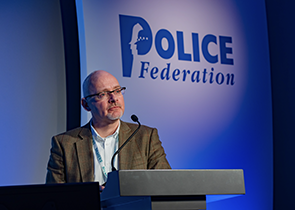Managing Fatigue in the Emergency Services
Over the years, we have worked with a number of police forces, providing guidance and training on the investigation of fatigue in road traffic collisions.
We have also worked with the Police Federation of England and Wales, to help raise awareness of the short-term and chronic effects of fatigue on police officers. Our involvement began when we contributed to the annual PolFed Demand, Capacity and Welfare Surveys, which have consistently highlighted the extent to which fatigue is impacting on the health, safety and operational performance of police officers.
Most recently, we were delighted to be invited to write an article on the subject of police fatigue as part of the Police Federation’s fatigue awareness campaign.
You can read this article here.
We need to change the culture around fatigue…
But the police service is not the only arm of the emergency services that is impacted by fatigue. The Health Service and Fire and Rescue also share the common problems of under-resourcing, a long hours culture, under-reporting and a strong commitment to getting the job done which, together, combine to make fatigue a major hazard to those working in these services and those whose lives depend on their actions.
The UK’s National Health Service is beginning to take action, with the launch in 2023 of the Healthcare Safety Investigation Branch (HSIB) campaign to raise awareness of the devastating impact that fatigue is having on health sector workers.
But a fundamental change in attitude is required right across the emergency services. We need to move away from trying to manage fatigue, to a more positive, proactive approach centred on seeking ways to promote an alert workforce.
An alert workforce is a safer workforce
To find out more about alertness management programmes and how they could benefit your workforce, please contact us.


